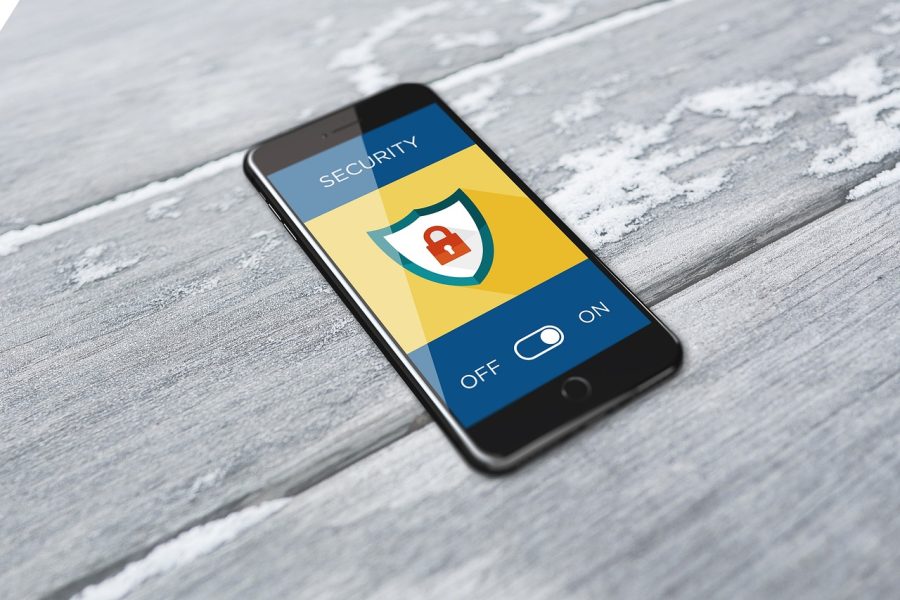Should schools block cell phone access?
In recent years, cell phones seem to be one of the most talked about subjects, especially regarding teenagers. While useful in many aspects, phones can also cause issues in places such as schools. To combat this, schools in our area are taking action against them.
Last year, Schoharie decided to prohibit phone use during the school day. For the entirety of the 2022-2023 school year, students had to lock their phones in pouches provided by the district for the day. Their reasoning was primarily due to TikTok and other social media. Schoharie’s principal, Kevin Calacone, says that TikTok challenges became an issue when they “asked kids to vandalize school property,” and “escalated to daring kids to call in school shooting threats,”(Bentulan link). While these are concerning trends, it begs the question, can this problem be solved strictly at school?
This issue extends far past the presence of phones in classrooms. School shooting threats and vandalism are no joke, but how can this be prevented when students still have access at home? This reasoning can be countered with the proposition that if students see these things at home, it is just as dangerous as seeing it in school. If someone had the idea to call in a threat or vandalize their school, the problem is much bigger than phone access in school. It is undeniable that these trends are dangerous to all involved, but locking phones away strictly during the school day cannot alleviate the issue.
These social media challenge related issues begin straight at the source; the social media platforms. If these dangerous trends aren’t censored from the beginning, it is already too late for schools to try to solve the issue.
Bethlehem High School will now use the pouches in the 2023-2024 school year. The pouches are from Yondr, and are locked and unlocked using a special device. Bethlehem’s superintendent stated that “the use of Yondr will lead to increased student engagement and success in the classroom,”(Monroe link). This is one of the more reasonable arguments to removing phones from schools. It is undeniable that phones prove to be a huge distraction and can certainly hinder academic success. However, removing access to phones all together removes the responsibility of the student to manage their own engagement and academics. Without any access to phones, students will not be able to learn how to take responsibility for when it is appropriate to use their phones. This could cause issues later in life, for example, in a workplace where phones wouldn’t be taken away.
Additional concerns arise with the lack of communication that students now have. With the rising rates of dangerous situations such as school shootings, parents are worried about how accessible it is for their children to contact both them and 911 in emergencies. Schoharie’s administration stated that “there is a phone in every room. Anyone will be able to call 911 if needed,”(Bentulan link). As for personal communication from family to student, Both Bethlehem and Schoharie say that the family can call the main office and have the student called to the office to use either their own phone or the school’s.
Removing phones from schools entirely could hypothetically solve several problems, but it also creates many others. For example, many students use their phones for quick communication with their parents. If parents had to call through the office for each one of these communications, it would bombard the school phone with frivolous calls. Additionally, phones and other electronics can be used to benefit students’ academics, for example listening to music. For many students, being able to listen to music while doing independent work helps with concentration and productivity.
The discourse over the removal would also do more harm than good. There are examples of students being distracted by phones, but many aren’t. Students who don’t abuse phone use in school shouldn’t be punished for the actions of others. Phones are indeed a privilege, but not one that should be completely removed. While this privilege could be abused, there are less extreme solutions to the problem than complete removal of phones.
When asked about the topic, students commented…
Heather E.: “I think that it’s pointless if people are already doing their work with access to their phones, There is no point in taking it away. I also use it to listen to music and text my mom. If it’s not an issue to me it shouldn’t be taken away for the whole day. I think that it should be left up to the teacher to decide if it is being a distraction and when to take it away.”
Dre: “I agree with Student 1 with a lot of stuff they said. I also think that if a teacher is having an issue with a specific student being distracted multiple times in the class, they could use something like a strike policy. Students that aren’t on their phone all the time or at least using their phone for something productive shouldn’t have it taken away”
Heather E.: “It reminds me of elementary school when the entire grade would be punished for the actions of only a few of the kids”
While they cannot speak for the entire student body, the general consensus of the students is that while it may be effective for these other schools, they think it is unnecessary at Galway. Since Galway is so small, a complete phone ban is unnecessary and an overreaction.
When asked about the topic, teachers said:
Mr. Darlington: “No, I think it should be left up to the teacher. If the teacher wants to have a phone ban depending on the class, the school should support it.”
Mr. Jacaruso: “I approve, the students concentrate better when they don’t have their phones. Behavior is better, less drama. And if you survey most schools it’s like a 4 to 1 ratio of students who are glad to have the ban to not.”
Though the students’ opinions were generally similar or the same, the opinions of teachers differ from person to person.
When asked about the topic, Ms. Britt-Gaeta, a member of administration commented:
“I feel that students would benefit academically and socially/emotionally if they were not allowed on their cell phones during school hours. Schools that have taken on the policy have seen an increase in student engagement, a decrease in anxiety, and a better school culture. If we can do something at the school to decrease mental health illness and increase academic performance and student happiness, then that is the direction we want to move in.”
While some valid concerns are made about the presence of phones in school, perhpas the question should be raised…Could phones benefit students more than be a disservice them? It could certainly be a possibility. If you ask almost any student in the school how they would respond to not being able to use their phone at all during the day, the answer would be negative. On the other hand, many adults when posed with the same question answer very differently. While this can be in part a generational difference, as many students have grown up surrounded by technology, it could also be caused by a difference in perspective. For example, during the school day, some students use their phone for things that benefit their learning, rather than harm it (calculator, images, music, translate, email, Google Classroom, etc.). These things could be done on a computer but it is much more efficient to be able to use a phone. There is research linking negative trends to phones, but the total removal of phones is an extreme measure. An approach should be made to work with phones in a more positive way.
Phones are certainly not going to disappear any time soon, and our best option is learning to use them beneficially and adapt, instead of remove them.

McKenna Kanaby is a senior who participates in nearly every club Galway has to offer. She loves sports, learning, and being heard. She enjoys reading and...

